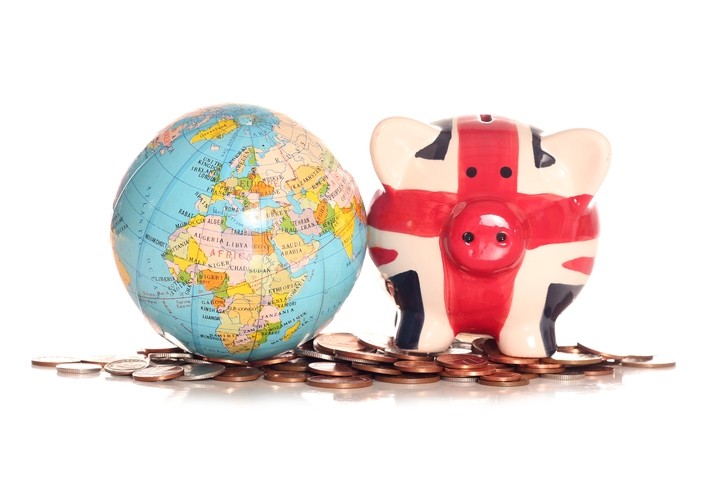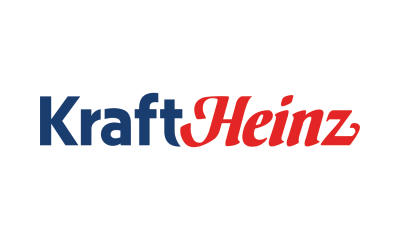Kraft Heinz drops Unilever bid but are other UK firms 'sitting ducks' for post-Brexit takeovers?

Unilever had already bluntly rejected Kraft Heinz's offer of $143bn (€134bn) but a joint statement issued yesterday (19 February) confirmed that Kraft Heinz had “amicably agreed” to withdraw its proposal for merging the two companies.
The companies added: “Unilever and Kraft Heinz hold each other in high regard. Kraft Heinz has the utmost respect for the culture, strategy and leadership of Unilever.”
Unilever's shares fell by 7% after the announcement.
Kraft Heinz is itself the product of a 2015 mega merger that was worth an estimated €49 billion (€46bn) and led to the creation of the world’s fifth biggest packaged food company in the world, according to Euromonitor. A deal between Kraft Heinz and Unilever would have resulted in one of the biggest consumer goods companies in the world.
Unilever’s decision to snub the deal must have been greeted with a sigh of relief from the country’s biggest union Unite - it was quick to urge Unilever bosses to reject the offer on Friday saying it would ultimately lead to job losses and poorer products for consumers – as well as the some 7,500 workers employed by Unilever in the UK.
Kraft Heinz is controlled by Brazilian investment company 3G Capital, known for its zero-based budgeting approach involving yearly assessments of the company’s expenses and frequent cuts.
British businesses and sitting ducks
But analysts and politicians alike have been quick to point out that the timing of the bid was far from coincidental. A weak, post-Brexit pound means it’s a good time for US companies to be buying British.
And that means more takeovers and mergers could be on the horizon - with the possible accompanying job losses. Foreign takeovers of UK companies is on the rise - there were 446 deals in the last six months of 2016 compared with 428 in the first half, according to Dealogic.
Liberal Democrat party leader Tim Farron told The Financial Times: “This deal would not be happening without Brexit. The government’s industrial strategy has been completely undermined by its determination to leave the single market.”
Neil Shah, director of research at Edison Investment Research, agreed that the approach for Unilever was “a sure sign” of the surge in the dollar’s buying power and sterling’s decline.
What the UK government’s post-Brexit industrial strategy will involve is unclear. Before taking up her position as UK prime minister, Theresa May said she believed Kraft should have been blocked from taking over beloved British confectionery brand Cadbury, and she criticised her predecessor David Cameron for saying he would not interfere in US pharmaceutical firm Pfizer bid to buy out AstraZeneca, the UK's second biggest pharmaceutical manufacturer.
"It is hard to think of an industry of greater strategic importance to Britain than its pharmaceutical industry, and AstraZeneca is one of the jewels in its crown," May said. "Yet two years ago the government almost allowed AstraZeneca to be sold to Pfizer, the US company with a track record of asset stripping and whose self-confessed attraction to the deal was to avoid tax.
"A proper industrial strategy wouldn’t automatically stop the sale of British firms to foreign ones, but it should be capable of stepping in to defend a sector that is as important as pharmaceuticals is to Britain."
A US company taking over one of Britain's biggest single employers and the manufacturer of many beloved household names could have been a bitter pill for the British public to swallow in the run-up to Article 50 negotiations, if the backlash against a Brexit-induced price rise and supply shortage of Marmite is anything to go by.
However, a spokesperson for Theresa May's cabinet denied rumours the government had a hand in Kraft Heinz walking away. At a lobby briefing this morning he said: "Number 10 wasn’t involved in it. The simple fact is that the bid has been withdrawn so I don’t have a view on a bid that doesn’t exist.”
For smaller companies with no claims of being a ‘jewel in the crown’, there are nonetheless warnings of an uncertain future.
Former business secretary and Liberal Democrat leader Vince Cable said that more international takeovers could be expected. “Many less famous names are sitting ducks thanks to post referendum devaluation,” he tweeted yesterday.
Nor, according to other analysts, is this necessarily the end of Kraft Heinz’s acquisition ambitions.
Writing in finance publication Breaking Views after the companies had announced their 'amicable split', Rob Cox said both the Chicago-based conglomerate and Unilever could end up seeing their business approaches as complementary.
“Kraft's focus on zero-based budgeting […] has allowed it to squeeze out a 23% operating profit margin, far higher than Unilever's 15%. But Unilever has managed to grow its top line, and in attractive emerging markets, in ways that Kraft will need to consider as its scalpel runs out of places to trim costs.
“Kraft may have lost the first round in its attempt to set the table for the biggest food orgy in the industry's history. But the maker of A1 Chicago Steakhouse marinades knows a thing or two about letting things marinate and season before serving,” he said.
This article has been amended to state Vince Cable is a former Liberal Democrat politician. A previous version said Labour.


















